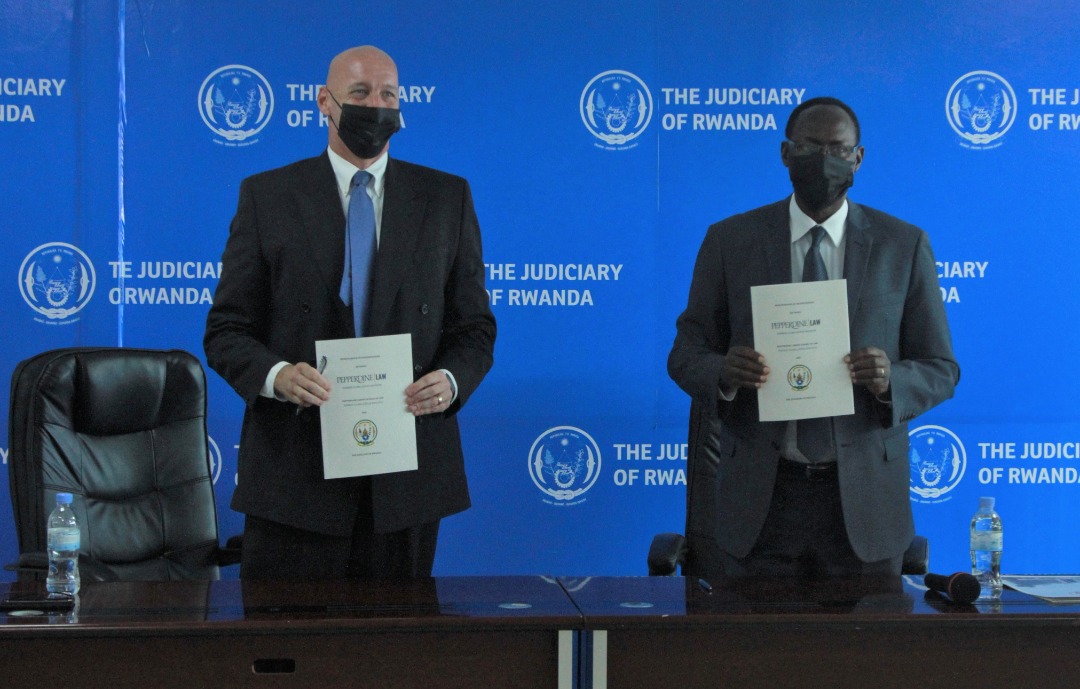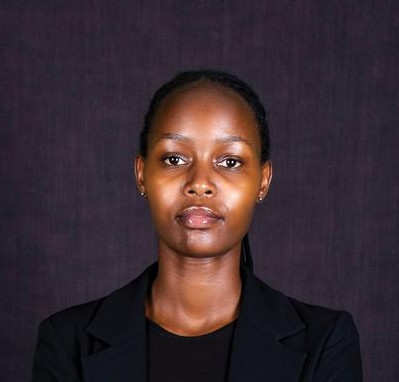

The Rwandan judiciary will starting in October this year embrace plea bargain to adjudicate on criminal cases, a development that is expected to address various issues including backlog of cases and congestion in prisons.
A plea bargain is any agreement in a criminal case between the prosecutor and the defendant where the latter agrees to plead guilty to a particular charge in return for a lenient sentence.
This may mean that the defendant will plead guilty to a less serious charge, or one of the several charges, in return for the dismissal of other charges. It may also mean that the defendant will plead guilty to the original criminal charge in return for a more lenient sentence.
The development was revealed on August 10 during the signing of an MoU to implement a five-year pilot project on plea bargaining, which was signed between the Supreme Court and Pepperdine University from California, US.
Speaking after the signing, Faustin Ntezilyayo, the Chief Justice disclosed that there is an issue with the rapid increase of criminal cases, and institutions of the criminal justice chain have been holding discussions and consultations to exchange views on measures to be taken to deal with this situation.
In addition, he pointed out that a study has been carried out that led to a draft criminal justice policy that has yet to be adopted by the competent authority.
"Some recommendations have invited us to rethink the way we used to consider some aspects of the criminal justice system and accept to change our mind set and embrace deep structural reforms that will increase fairness and ensure proportionate punishment without sacrificing public safety,” explained Ntezilyayo, who is also the president of the Supreme Court.
Commenting on the expected outcomes, he mentioned time-saving to all the parties involved in a criminal case, saying that it will help unclog the dockets of the prosecution and courts thus address the issue of backlog in these institutions.
Moreover, he said that the procedure will also be a solution to decongest prisons, reduce the time spent on remand in distinct cases, and aid in the investigation process.
Speaking on behalf of Pepperdine Caruso School of Law, Cameron McCollum, its director, commended all that contributed to the project as well as the Rwandan judicial system for trusting them.
In addition, he revealed that the MoU is the result of the friendship between the two parties spanning over a decade and pledged to support Rwanda throughout their agenda within the judiciary, as pertains to the implementation of a plea bargain.
"We’re not trying to do anything other than to partner with you to advance your goals of implementing plea bargaining, reducing case backlog, seeing the expedient, efficient, and effective carrying out of the justice system,” he said
Plea bargaining is looked at as one of the strategies to effectively fight organized crime.
To be piloted on two crimes at intermediate courts
Under the agreement, the first year of the trial will be rolled out in five intermediate courts and will be scaled up later after getting the first year’s results in terms of what to improve or keep among others.
In the transitional year, we will be making an assessment of effectiveness and then reviewing processes as well as addressing the faced issues. Judge Aime Muyoboke Karimunda, the head of the project explained.
Those courts include Gasabo, Nyarugenge, Gicumbi, Muhanga, and Musanze Intermediate courts.
In addition, he pointed out that the project will be extended but they thought it was better to move gradually.
Two crimes that will follow this procedure within this pilot phase are assault and theft.
Speaking on the reasons behind starting with only two crimes, karimunda revealed that the two crimes make up the majority of Criminal Case inflows in the Prosecution and Courts.
Not new in the Rwandan Judiciary system
Karimunda revealed that plea bargaining is not new in Rwanda saying that first introduced by the organic law on the organization of prosecution for offences constituting the crime of Genocide and crimes against Humanity committed since October 1, 1990.
However, it has not been successful as was expected.


